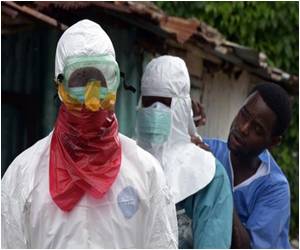Health experts in 16 European countries have termed the outbreak as a threat to the ‘entire world’.

"After months of inaction and neglect from the international community, the Ebola epidemic in west Africa has now spiralled utterly out of control," said their open letter.
"Today, the virus is a threat not only to the countries where the outbreak has overwhelmed the capacity of national health systems, but also to the entire world."
"We urge our governments to mobilise all possible resources to assist west Africa in dealing with this horrific epidemic."
The deadliest Ebola epidemic has infected more than 6,200 people in west Africa and killed nearly half of them since late last year, according to the World Health Organization (WHO).
The virus can kill within days, causing high fever, muscle pain, vomiting, diarrhoea, and in some cases unstoppable bleeding.
Advertisement
"... We urge European governments to create mechanisms that allow professionals working in public health-care systems to volunteer for temporary leave (with hazard pay) to contribute to the epidemic control efforts in the region," they wrote.
Advertisement
European governments should be incentivising private companies to reopen travel routes in affected regions, as well as "mobilising military and civil transport by air, sea and land to ship food, supplies and personnel to the affected regions," they added.
"European countries have the resources and the knowledge to deploy them," the experts wrote.
And they warned the Ebola epidemic represents a crucial public health issue: "unchecked, it might very well become a geopolitical crisis."
The European Union has already promised about 150 million euros ($190 million) in Ebola aid and has urged member states to add more by the end of September. The EU executive has estimated member states' contributions so far at about 10 million euros.
The United States has spent about $100 million on fighting the epidemic, the World Bank has pledged $200 million, and the African Development Bank provided $60 million.
The WHO has launched a $100 million emergency response plan, saying "several hundred" medical personnel must be deployed.
Several hundred medical staff have already been sent to west Africa by the WHO, Doctors Without Borders, the US Centers for Disease Control, China and the African Union, and more have been promised.
Source-AFP










